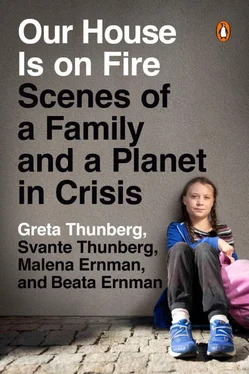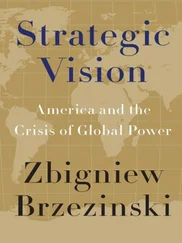Greta Thunberg - Our House Is on Fire - Scenes of a Family and a Planet in Crisis
Здесь есть возможность читать онлайн «Greta Thunberg - Our House Is on Fire - Scenes of a Family and a Planet in Crisis» весь текст электронной книги совершенно бесплатно (целиком полную версию без сокращений). В некоторых случаях можно слушать аудио, скачать через торрент в формате fb2 и присутствует краткое содержание. Город: New York, Год выпуска: 2020, ISBN: 2020, Издательство: Penguin Books, Жанр: Биографии и Мемуары, Публицистика, на английском языке. Описание произведения, (предисловие) а так же отзывы посетителей доступны на портале библиотеки ЛибКат.
- Название:Our House Is on Fire: Scenes of a Family and a Planet in Crisis
- Автор:
- Издательство:Penguin Books
- Жанр:
- Год:2020
- Город:New York
- ISBN:978-0-14313-357-5
- Рейтинг книги:4 / 5. Голосов: 1
-
Избранное:Добавить в избранное
- Отзывы:
-
Ваша оценка:
- 80
- 1
- 2
- 3
- 4
- 5
Our House Is on Fire: Scenes of a Family and a Planet in Crisis: краткое содержание, описание и аннотация
Предлагаем к чтению аннотацию, описание, краткое содержание или предисловие (зависит от того, что написал сам автор книги «Our House Is on Fire: Scenes of a Family and a Planet in Crisis»). Если вы не нашли необходимую информацию о книге — напишите в комментариях, мы постараемся отыскать её.
Our House Is on Fire: Scenes of a Family and a Planet in Crisis — читать онлайн бесплатно полную книгу (весь текст) целиком
Ниже представлен текст книги, разбитый по страницам. Система сохранения места последней прочитанной страницы, позволяет с удобством читать онлайн бесплатно книгу «Our House Is on Fire: Scenes of a Family and a Planet in Crisis», без необходимости каждый раз заново искать на чём Вы остановились. Поставьте закладку, и сможете в любой момент перейти на страницу, на которой закончили чтение.
Интервал:
Закладка:
‘Don’t you see what you’re doing?’ I sobbed in despair.
‘Yeah.’
‘But why are you doing it?’
Beata was crying too.
‘I don’t know.’
There were plenty of clues that something really wasn’t right, but that didn’t matter. To us, the logical thing to do was to scream and wave our arms around, demanding that a four-year-old could explain her own bad behaviour. Like two idiots.
‘I think Beata has ADHD,’ I said later to Svante. ‘This isn’t just ordinary disobedience.’
I don’t know how I arrived at that conclusion right then, and even though today I know that our suspicions wouldn’t have led to us getting any help for years, I still wish we’d followed that train of thought much further than we did.
Only deep in retrospect do we understand the extent of our resistance to admitting that the situation was out of the ordinary. Instead, we blamed ourselves and adapted. As you do.
At pre-school Beata is a little angel, as she is everywhere outside the home. Clever, kind, shy and quite wonderfully charming. She is brilliant at playing the social game, and the slightest hint that we will tell her teachers about how she behaves at home causes her to break down.
Of course, we have no idea yet that these are all clear, early signs of ADHD in girls. Because how could we? There hasn’t exactly been a public-awareness campaign.
We only know what we know. And we only do as we’ve been taught. To set limits and bring up your children to be functioning members of society. Then we continue.
So we continue, to tell her off. We continue to teach manners. Setting clear boundaries. And then we throw ourselves in the car, googling hotels on the phone as we drive north. Towards the Åre ski resort. Because the family doesn’t function when it’s just the four of us, Svante reasons, all we have to do is surround ourselves with other people at hotels and restaurants and then everything will be fine. Or better, at least, and ‘It will work out later, you’ll see’.
And Svante’s rational thinking works! Apart from some sweat, stress and tears on the children’s ski slope, we’re doing fine again. We’re functioning.
We learn how to ski. We drink hot chocolate and eat sausages with French fries for lunch.
In the afternoons we swim in the pool and then we dine out.
It’s lovely.
We have postponed the problem and swept everything under the rug in favour of a functioning school holiday and a little peace and quiet. We prioritize the surface over the content, just as we’ve been taught. We conceal our deviations and our weaknesses. We fix our gaze on the road ahead and we never, ever look away.
SCENE 18.
Levelling Out
Six months after Greta received her diagnosis, life has levelled out into something that resembles an everyday routine. It is 2015 and she has started at a new school. I’ve cleared my calendar and put work on the back burner.
Beata is in fourth grade. She lives and breathes music and dance. She is totally obsessed by the British girl-group Little Mix and her room is wallpapered with pictures of the four band members, Perrie, Jade, Jesy and Leigh-Anne. She’s a little musical genius herself.
I can memorize an opera in two days if I have to, and almost no one I’ve ever met has a better pitch than I do – except for Beata.
She has sung in front of thousands of people, and been on a live broadcast at the Allsång sing-along at Skansen, and hit every note without a trace of nerves, despite millions of TV viewers.
I have never heard or seen anyone learn music faster than she does.
But while we’re full up this year with getting back on our feet and taking care of Greta, Beata’s having more and more of a tough time.
In school everything is ticking along.
But at home she falls apart, crashes. She can’t stand being with us at all any more.
Everything Svante and I do upsets her. We guess it’s because with us she can relax and drop the social game. She is highly sensitive and in our company can lose control and take out all her frustrations about sounds, tastes, clothes or basically anything that is too much and too difficult to take in.
Beata clearly is not feeling well. But it has still not occurred to us in what way. Neither do we understand how drained we are ourselves, simply from trying to get our days to fit together. Or the toll that level of fatigue takes on your judgement.
SCENE 19.
When War Moved In with Us
Autumn arrives and Europe is in the throes of the biggest refugee crisis since the Second World War. Although for the average person, it isn’t much of a crisis, as long as you aren’t working as an administrator at the Migration Agency or as a firefighter getting called out to extinguish blazes at Swedish refugee camps every other night.
Our family believes that no society in the world can manage the biggest refugee crisis since the Second World War without ordinary citizens rolling up their sleeves and trying to help. So we do what we can.
Beata and Greta want to do even more, so they propose that we let our summer house on Ingarö be used as refugee housing, and in November a small family moves in and we arrange bus passes and food, and we explain that they get to stay there until the asylum process is over. On the weekends we eat Syrian food together with all the neighbours and we look at pictures from Damascus.
Greta only sniffs at the food, leaning over saucepans and table settings. Beata sits on our loaned-out sofa, her back straight, with an exemplary smile. She bravely tastes her way through the Syrian cuisine. While Svante and I make our very best effort to be good guests.
But even if the war has moved in with us – even if it has remade our beds with donated Disney-print sheets from the Refugees Welcome transit housing in Sickla – it is still too far away for us to understand.And however we try, it still takes so much strength to take those baby steps forward that we are barely capable of processing anything else, however sincerely we might want to. We’re just too tired.
SCENE 20.
The Worst Bloody Mother in the World
‘You bloody fucking bitch!’
Beata is standing in the living room, hurling DVDs from the bookshelf down the spiral staircase to the kitchen. There was a time when we had long, serious conversations about the meaning of such words, but that was a long time ago. Pippi Longstocking and the Teletubbies take the brunt of it. It’s not the first time and it is definitely not the last.
‘You only care about Greta. Never about me. I hate you, Mum. You are the worst bloody mother in the whole world, you bloody fucking bitch,’ she screams as Jasper the Penguin hits me on the forehead.
Beata slams the door to her bedroom, kicks the wall a few times as hard as she can, and once again we are surprised at the incredible durability of double plasterboard.
We’re fairly beat up too, but unfortunately we aren’t as tough as the bedroom walls.
I’m not, in any case.
It’s a whole lot harder to stay on your feet after the second blow. Now that our younger daughter is in need of extra care.
Greta’s crash may have been more acute because she stopped eating, but this is a different kind of painful.
With Greta it was all kilograms, minutes, days, tables and structure. Everything was almost over-explicit and there was a measure of relief in what was square and ordered.
With Beata it’s all chaos, compulsion, defiance and panic.
The only similarity is the time – as purely in terms of age, the explosion detonated at the exact same moment: pre-puberty. When the clock strikes ten or eleven years old.
Читать дальшеИнтервал:
Закладка:
Похожие книги на «Our House Is on Fire: Scenes of a Family and a Planet in Crisis»
Представляем Вашему вниманию похожие книги на «Our House Is on Fire: Scenes of a Family and a Planet in Crisis» списком для выбора. Мы отобрали схожую по названию и смыслу литературу в надежде предоставить читателям больше вариантов отыскать новые, интересные, ещё непрочитанные произведения.
Обсуждение, отзывы о книге «Our House Is on Fire: Scenes of a Family and a Planet in Crisis» и просто собственные мнения читателей. Оставьте ваши комментарии, напишите, что Вы думаете о произведении, его смысле или главных героях. Укажите что конкретно понравилось, а что нет, и почему Вы так считаете.






![Корнелл Вулрич - Murder at Mother’s Knee [= Something That Happened in Our House]](/books/398097/kornell-vulrich-murder-at-mother-s-knee-somethin-thumb.webp)





